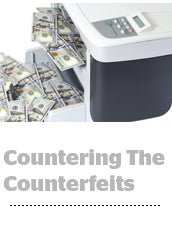 Ads.txt research released Tuesday shines a new light on the extent of the harm done to major publishers by inventory resellers and lax supply chain standards.
Ads.txt research released Tuesday shines a new light on the extent of the harm done to major publishers by inventory resellers and lax supply chain standards.
A joint study from Google, Amobee and Quantcast that examined Ads.txt data found rampant counterfeit inventory available to DSPs that seemingly came from 16 media companies, including Turner, The New York Times, Business Insider and The Washington Post.
The study cataloged inventory callouts allegedly from the 16 publishers available across three participating DSPs, then cross-checked those callouts against the legitimate inventory on programmatic exchanges. There were four times more display callouts than legitimate inventory, and 57 times more video ad callouts.
“Multiplied across publishers in the ecosystem you get a sense of how vast the problem is,” said Pooja Kapoor, Google’s head of global strategy, programmatic and ecosystem health. “If we all adopt and enforce Ads.txt in a uniform way, and everyone is filtering inventory, we can redirect billions of dollars into publisher pockets.”
And publishers need the demand side’s help to enforce Ads.txt.
Business Insider has taken an aggressive approach, testing its own ad supply chain and asking exchange vendors to shut down unauthorized accounts ostensibly reselling its inventory, said Jana Meron, the publisher’s VP of programmatic and data strategy.
“This goes back to exchange technology companies needing to be the sheriffs and not just the pipes,” she said.
Aside from dragging down CPMs and broadly siphoning off advertiser interest in buying a certain publisher property, counterfeit inventory throws a wrench in the brand and attribution efforts for top news media companies.
CNN, one of the most spoofed sites, deals with second-order effects when readers or marketers are fooled by fraudulent CNN pages, said Nick Johnson, senior VP of digital ad sales strategy at CNN parent company Turner. Readers get a bad experience – or even outright scammed – while marketers run attribution for bot-viewed inventory on a hoax site thinking it’s a CNN campaign.
Video advertising in particular could see CPM boosts for reputable publishers if the study results are consistent in the market and Ads.txt cuts out most of the unauthorized media.
“One thing that stood out to me in this study is that video inventory is overstated by more than 50 times,” Johnson said. “There’s way less quality video available than the market thinks.”











